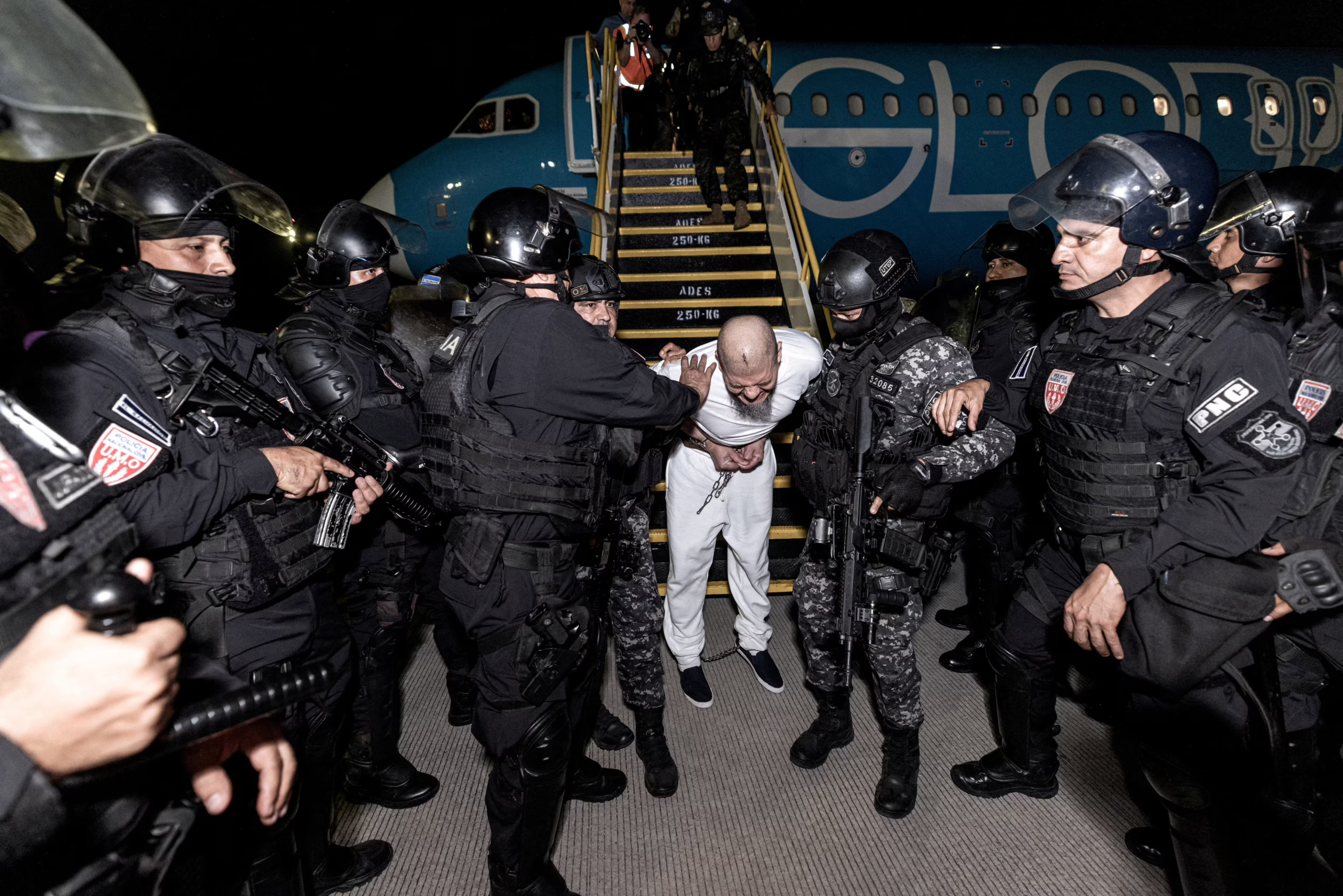US Deportations 238 ‘gang members’ to El Salvador

US Deportations 238 ‘gang members’ to El Salvador
The recent deportation of over 200 alleged gang members from the United States to El Salvador has sparked significant controversy, legal challenges, and international debate. This incident not only highlights the complexities of immigration enforcement but also raises critical questions about the balance of powers within the U.S. government and adherence to due process.
US Deportations
On March 16, 2025, the Biden administration deported 238 alleged members of the Venezuelan gang Tren de Aragua and 23 members of the Salvadoran gang MS-13 to El Salvador. This action was taken despite a federal judge’s order to halt such deportations temporarily. The administration justified the move by invoking the Alien Enemies Act of 1798, a rarely used law that allows for removing foreign nationals deemed a threat to national security.
Prior to the deportations, U.S. District Judge James Boasberg issued a 14-day temporary restraining order to halt the deportations, citing concerns over due process and the legality of using the Alien Enemies Act in this context. Despite this order, the administration proceeded with the deportations, arguing that the flights had already left U.S. airspace and were beyond the court’s jurisdiction.
These actions have sparked intense legal and political debates regarding executive authority, judicial oversight, and constitutional rights.
Why Did the Conflict Start Between El Salvador and the U.S.? US Deportations
The conflict between El Salvador and the United States over deportations has its roots in historical, political, and legal tensions. The deportation of alleged gang members without thorough judicial review has added strain to an already fragile relationship between the two nations.
-
Mass Deportations and Legal Violations
- The S. deported over 250 alleged gang members, including members of MS-13 and Tren de Aragua.
- A S. federal judge issued a temporary order to halt deportations, citing legal concerns and due process violations.
- The Biden administration proceeded with the deportations, anyway, arguing that national security concerns took priority.
- This defiance of judicial authority has triggered concerns about the rule of law and executive overreach in the U.S.
-
El Salvador’s Gang Crackdown
- El Salvador’s President Nayib Bukelehas been leading a massive crackdown on gangs since 2022, arresting over 70,000 alleged gang members.
- The U.S. deportation of gang members to El Salvador puts more pressure on Bukele’s government, which has struggled with prison overcrowding and human rights concerns.
- Many of the deported individuals had no confirmed gang ties, raising fears that innocent people might be caught in El Salvador’s tough security policies.
-
U.S.-El Salvador Tensions Over Human Rights
- The U.S. has criticized Bukele’s administration for authoritarian policies, including the suspension of civil liberties during the gang crackdown.
- Bukele, in return, has accused the U.S. of hypocrisy, arguing that America fails to control crime at home while interfering in El Salvador’s security policies.
- The U.S. has cut aid to El Salvador in the past over human rights violations, further straining relations.
-
The Long-Standing Immigration Disputes
- The U.S. has a history of deporting Salvadorans, many of whom have no connection to gangs.
- In the 1990s, U.S. deportations contributed to the growth of MS-13in El Salvador, as gang members formed networks after being sent back.
- Many Salvadorans in the U.S. fear being sent back due to violence, extortion, and economic instability in their home country.
-
Political Motives in Both Countries
- In the U.S., the Biden administration is under political pressure to appear tough on immigration and crime.
- In El Salvador, Bukele has used the gang crackdown to strengthen his popularity, presenting himself as the only leader who can fix crime.
- Both leaders are using the conflict for domestic political gain, making cooperation difficult.
International Reactions
The deportations have drawn criticism from various international actors. Venezuelan officials condemned the U.S. actions, asserting that the deported individuals were denied due process. Jorge Rodríguez, a top Venezuelan lawmaker, stated that he would urge the Venezuelan government to issue a warning against traveling to the United States, labeling it as unsafe for Venezuelans. US Deportations
Meanwhile, El Salvador’s President, Nayib Bukele, agreed to accept the deported individuals, housing them in the country’s Centre for the Confinement of Terrorism (CECOT), a high-security prison known for detaining thousands of gang members.
Constitutional and Legal Implications US Deportations
The administration’s decision to proceed with the deportations despite a court order has sparked a constitutional debate regarding the separation of powers. Legal experts argue that such actions undermine the judiciary’s authority and set a concerning precedent for executive overreach. The situation has prompted discussions about the potential erosion of checks and balances within the U.S. government.
As of now, the deported individuals remain in custody in El Salvador. The U.S. Justice Department has been ordered to provide explanations for the administration’s actions, and further legal proceedings are anticipated.
What’s Next? US Deportations
- Legal challenges are expected in the U.S. over whether the government violated a court order.
- El Salvador may seek more international support to prevent mass deportations.
- The U.S. and El Salvador will need to negotiate new agreements deportations and law enforcement collaboration.
This event underscores the complexities inherent in immigration enforcement and the delicate balance between ensuring national security and upholding constitutional principles. The outcomes of the ongoing legal challenges may have lasting implications for U.S. immigration policy and the interplay between different branches of government US Deportations